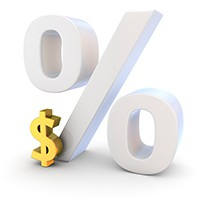Last updated: November 14 2013
The After-Tax Costs of Investing

To maximize your investment outcomes, be sure to assess the after-tax cost of fees for each investment. A higher return due to lower fees (as opposed to increased risk) can result in significantly more income in retirement and higher estate values.
Some fees can be written off on your tax return, thereby minimizing your net cost:
-
Management Fees. The cost of investing in a mutual fund or exchange traded funds is the management fee charged yearly, transactions costs, administration costs and sales tax on the fees. Management fees on mutual funds typically range from 1% to 3% of the value of the fund each year. Lower risk funds have lower fees while higher risk funds have higher fees. Alternatively, exchange traded funds have fees that range from 0.15% to 1%. The largest contributors to the difference in the fees are the distribution and commission costs paid to advisors. The mutual fund fees typically include a commission to the advisor while the fees quoted for the exchange traded funds do not.
-
Brokerage Fees. The transaction cost of trading stock could be a flat fee of $10 to $50 or it could be a percent of the size of the trade. The transaction commission percent will typically range from 1% and up depending often on the size of the trade as well as the price of the security. Managed accounts take a percentage of the capital.
-
Debt Instruments—Cost of Spreads. The cost of investing in bonds, GICs or other interest-producing assets varies. In most cases the cost of purchasing a GIC is zero in that there is typically no transaction cost or commission expense incurred. However the management fee is the spread between what an institution will pay on its debt instruments vs. what it will charge its customers to borrow money. Alternatively, the price you pay for a specific bond may also have the commission and the transaction cost already built in. In some instances this will create a very low net return for the investor so you need to be aware of what these amounts are. The same will be true for most other interest-producing assets that are traded in the open market.
-
Investment Counsel. The cost of investment counsel will typically be in the 1% range and will decline as the value of a portfolio rises beyond specific thresholds. The additional cost of investment council services will be administration, product and transaction fees. Total investment council fees from all sources typically range in the 1% to 2.5% range. In certain cases, investment council fees may be tax deductible.
- Investment Loans. The cost of borrowing to invest is your interest cost which may be tax deductible in the case of certain non-registered accounts or non-financial assets. If the investment is worth less than the loan at the end of the day, borrowing may be too expensive, even after tax: the chance that you may have to find new money to pay back the loan requires consideration at the time this decision is made. Interest costs are a deduction that can offset all other income of the year.
Excerpted from Essential Tax Facts: 2013 Edition. © Knowledge Bureau, Inc. All rights reserved.
